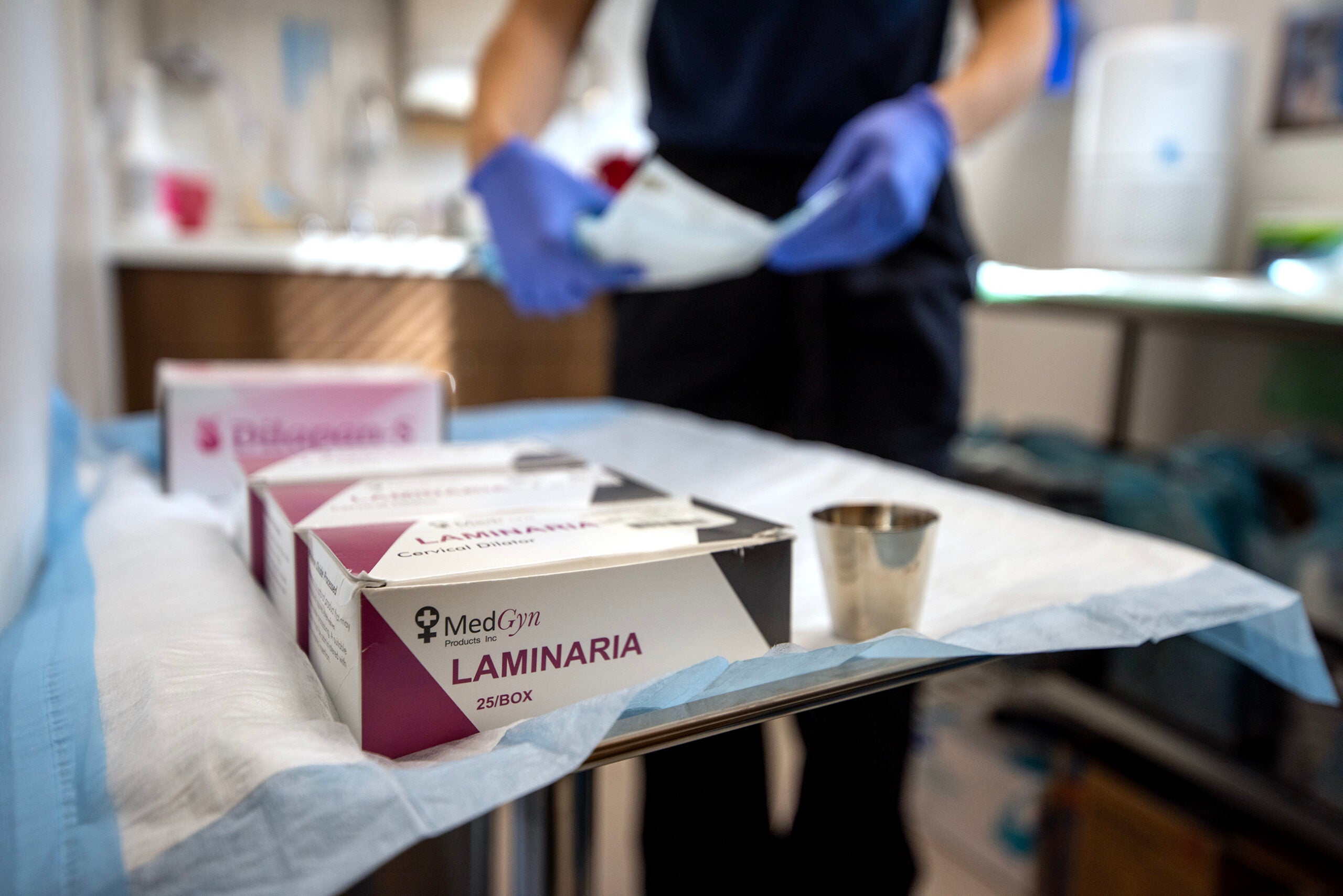Republican state lawmakers are working to fast-track a proposal that would ban abortions after 20 weeks of pregnancy.
The bill’s sponsors in the Legislature, along with religious and pro-life groups, have argued that a ban at 20 weeks is necessary because they believe that’s when fetuses are able to feel pain, a claim often disputed by doctors.
Reproductive rights advocates and some physicians have publicly opposed the legislation, saying it interferes with personal health care choices and that some provisions could end up putting mothers in danger. But the Republican majority at the state Capitol looks likely to move forward with the bill, and Gov. Scott Walker has said he will sign it into law.
News with a little more humanity
WPR’s “Wisconsin Today” newsletter keeps you connected to the state you love without feeling overwhelmed. No paywall. No agenda. No corporate filter.
According to Capital Times reporter Jessie Opoien, who has been following the issue in the Legislature, the ban’s backers have made the debate about protecting unborn children.
“The people who do support a bill like this believe from the fetal pain perspective, it’s a non-controversial issue,” Opoien said. “It’s something they believe that both sides should be able to agree on. From the fetal pain issue, this isn’t a debate. It’s not so much an abortion debate, but stopping fetal pain at some point in a pregnancy.”
Barbara Sella, an associate director with the Wisconsin Catholic Conference, said her group supports the bill because it “humanizes the unborn child.”
“For too long, we’ve been told that this unborn child is not fully human, doesn’t have the characteristic of a human being,” Sella said. “What this bill does is that it demonstrates that some of the things that we regard as making us human, the ability to feel pain, can be found as early as 20 weeks, if not earlier.”
Sella also praised provisions in the legislation that would provide support services for pregnant women who find out their babies have serious health problems but can no longer terminate the pregnancy.
“What pleased us about this bill in particular was the length that it goes to to provide women who are contemplating abortion with information about where they can go for help,” she said. “Personally, what impressed me very much was the reference to perinatal palliative care … When a woman or family is given a diagnosis that the child is not going to survive long after birth, the family is accompanied from the moment of that diagnosis all the way through the birth and even after birth by nurses, doctors, and medical staff.”
Dr. Douglas Laube, a University of Wisconsin professor and past president of the American College of Obstetricians and Gynecologists, said the idea of fetal pain at 20 weeks isn’t supported by medical research.
“The mainstream, credible scientific literature suggests that this is not the case and it is because of the incomplete formation of the neuro-pathways that transmit pain to be interpreted as pain as we know it,” Laube said.
He also argued that the bill’s lone exception for immediate medical emergencies is written in a way that could harm a mother’s health. Even in those cases, Laube said, doctors would be required to decide on a delivery method that is most likely to keep the fetus alive outside the womb.
“What that implies … is that a cesarean section — which really is a concept that is applicable much later in pregnancy — would need to be done in order to deliver an intact fetus, which puts the woman at anywhere from a five- to eight-times-greater risk for morbidity and mortality,” said Laube.
Despite criticism, lawmakers are moving quickly to move the ban into law.
“The common theory among legislators is that when you have the votes, you’ve got to move with it,” said the Cap Times’ Jessie Opoien. “I think not only do they believe they have the votes, but Gov. Walker has indicated his support on more than one occasion, both before and after the bill was introduced. When you’ve got the support, you want to move quickly on something like this.”
A joint hearing is scheduled for Tuesday before Assembly and Senate health committees. The bill was introduced last week and its sponsors have said they want to pass it before debate on the state budget begins later in June.
Under the bill, doctors who perform an abortion after 20 weeks in non-emergency situations could be charged with a felony and subject to up to a $10,000 in fines or three years in prison. The bill doesn’t provide an exception for pregnancies conceived from rape or incest.
Kayla Blado contributed reporting to this story.
Wisconsin Public Radio, © Copyright 2026, Board of Regents of the University of Wisconsin System and Wisconsin Educational Communications Board.





